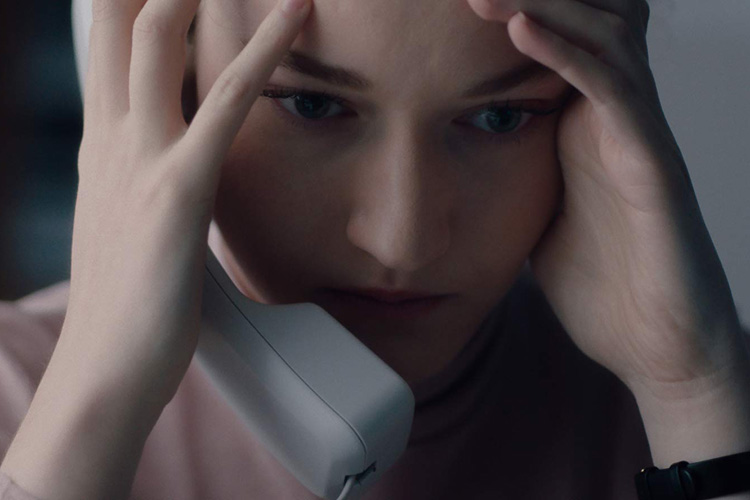The Assistant is the first narrative feature from writer/director Kitty Green, a documentarian with a penchant for controversial subjects. Her newest project may be fiction, but it stems from a very real darkness in contemporary history: the sexual abuse scandals of Harvey Weinstein. At first glance, The Assistant may seem like the first movie to deal directly with the former Hollywood mogul, but its approach is much subtler.
Weinstein is neither seen nor named in The Assistant, as the movie is less about him and more about the system that let him happen. It shares a kinship with 2018’s The Tale, another narrative debut from a female documentarian opening up the Me Too conversation, but where The Tale was personal and lacerating, The Assistant is academic and scrutinizing. It follows Jane, a young woman who just entered the film industry as an assistant to the biggest producer in Hollywood, as she begins to notice her boss’ predatory behavior towards women. When she tries to bring the problem to light, she’s systematically hushed by an organization designed to do just that.
The film’s aesthetic makeup is still, sparse, and cold: the camera rarely moves mid-shot, the color grading is evocative of a perpetual winter’s night, and the dialogue doesn’t extend beyond rote office conversation. It’s like the transcendental style of Schrader and Ozu without a source of transcendental hope—hell is the dregs of reality, beset by patriarchy and restrained by the bonds of the work week. For a first time fiction filmmaker, Green has an incisive sense for formally rendering the paralysis of hopelessness. In the modern age, rocks and hard places are microaggressions and cubicles, and the only way to become unstuck is to accept professional ruin. To be marginalized is to be frozen, and The Assistant looks suitably frigid.
Most of the bare-bones narrative consists of everyday office work: scheduling appointments, arranging travel, and writing checks for an unseen important man. There are hints of something sinister in the air, like a lone earring on a couch and a silently distressed woman in the bathroom, but for the most part The Assistant is banal. Green interrogates this banality with her camera the way Hannah Arendt did with her pen—what’s it hiding? Shots linger a little too long and the boredom becomes dread; the camera inches from detached distance to close-ups when Jane intuits that there’s more going on than meets the eye. Something’s wrong underneath the normalcy.
Even if The Assistant ends up mistaking the lack of a conclusion for a meaningful statement on futility, the rest settles in your memory like trauma. It’s a film that—like Julia Garner’s performance—speaks volumes without saying anything outright. In the quiet context of oppression, compliments are Trojan horses, male coworkers are spies, and employment is a cold war. The Assistant relays the connection between male power and the delegation of menial work to women like an open secret: the scariest thing about corporate misogyny is that it’s routine.
★★★★ (4/5)




